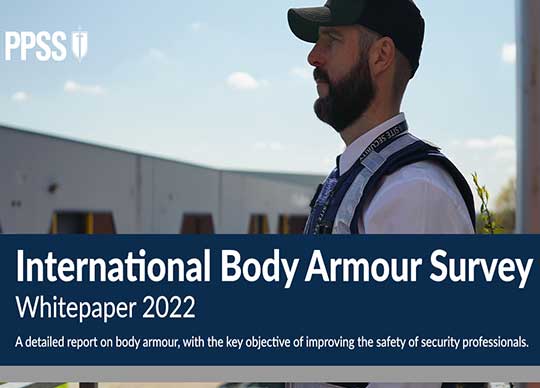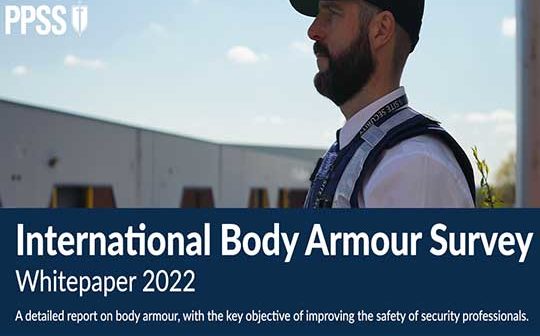
British firm PPSS Group has published its international body armour survey whitepaper. 729 security professionals from countries around the world completed the survey, which was conducted between 01 February and 31 March 2022.
According to this survey 39% of participants stated the information given to them about the body armour they are wearing was not sufficient. This means it was not explained to them appropriately what levels of protection their body armour is actually offering, or indeed not offering.
“I believe it is absolutely essential that a security professional has a clear understanding of his or her body armour’s capabilities, limitations and life expectancy.” PPSS Group CEO Robert Kaiser said.
“I equally believe it is of utmost importance for managers and procurement professionals, to share all available body armour performance related information with frontline staff, enabling these men and women to make the best possible decisions in accordance with the body armour’s protection levels and capabilities.”
45% of participants stated they were not aware of the fact that body armour performance levels in general are only being certified for a limited period of five years. The whitepaper offers highly informative additional information to this subject.
High levels of physical abuse towards security professionals have also been revealed in the survey, with 78% of those completing our survey stating that they have been assaulted on duty, many of which several times. This is echoing the findings of another very recent and well documented UK survey revealing security professionals were facing unacceptable levels of physical and verbal abuse.
The whitepaper is also highlighting the need for body armour to provide certified ‘impact’ or ‘blunt force’ protection, after it has been established that 83% of security professionals completing the survey highlighted the fact they have suffered from severe bruising during physical confrontation.
52% of those who have taken part in the survey answered the question “would you benefit from further body armour training” with YES. One could most certainly conclude that people want to know more about their body armour’s performance, certification, and limitations.
You can read the full report here.






